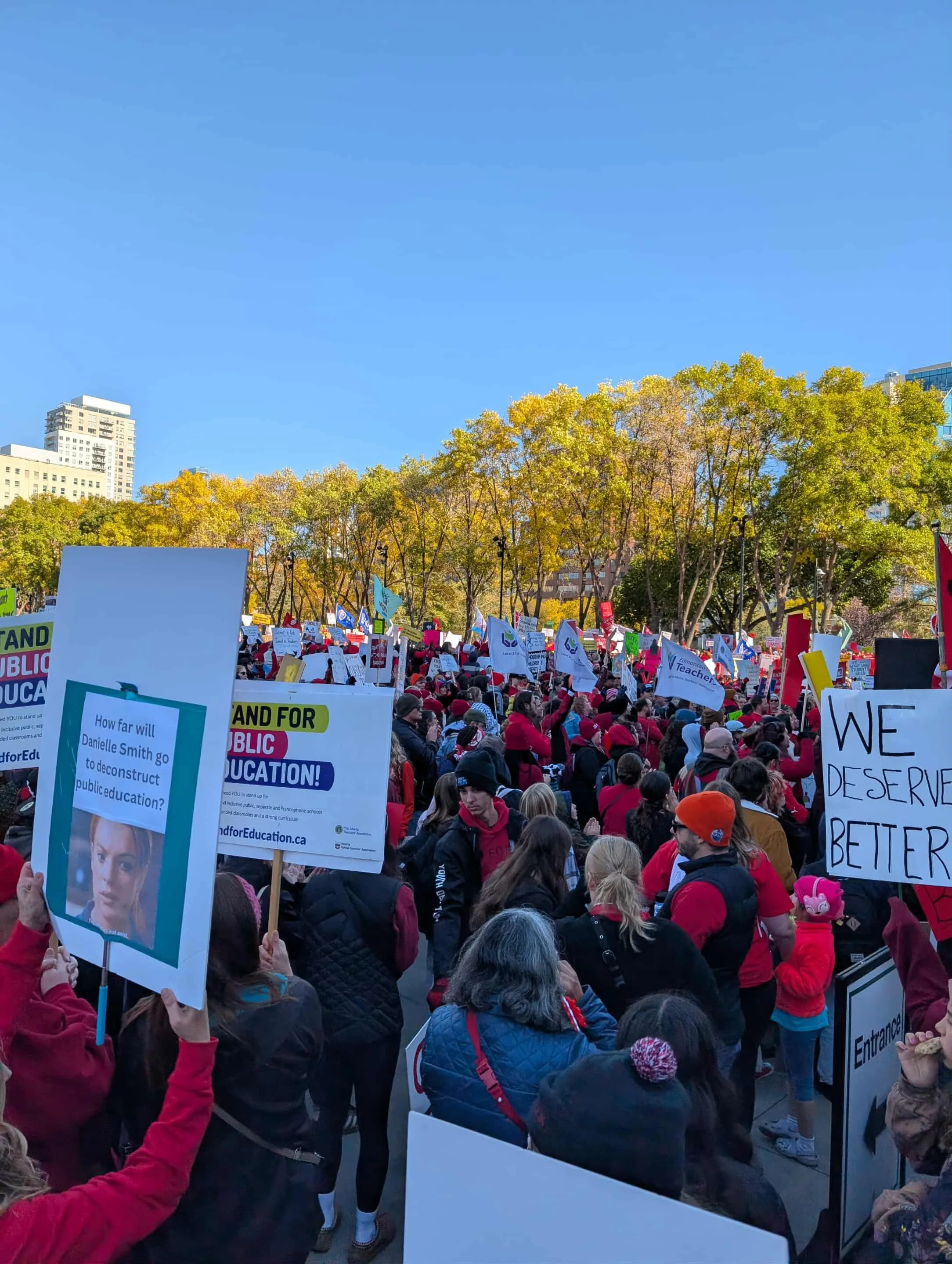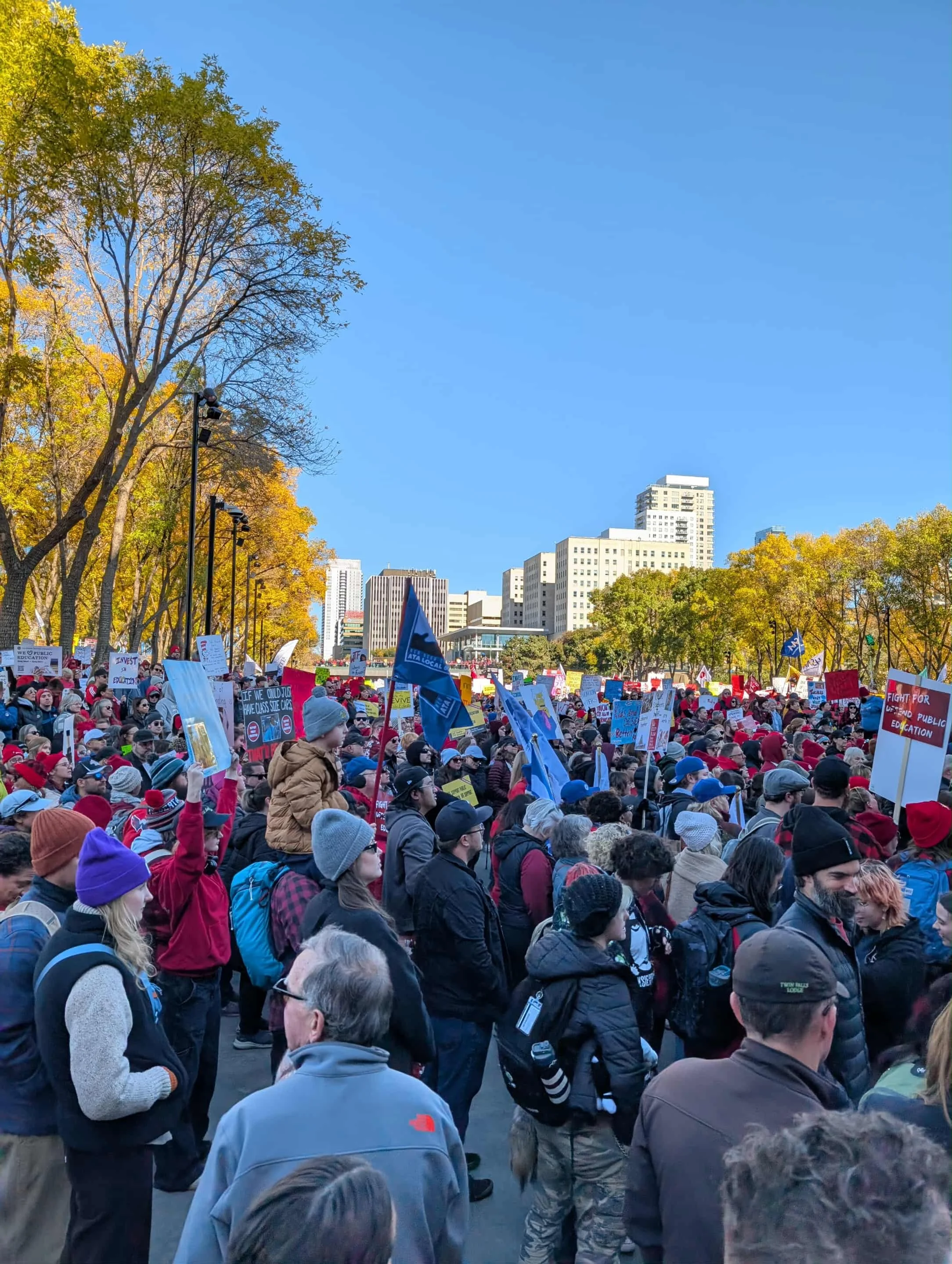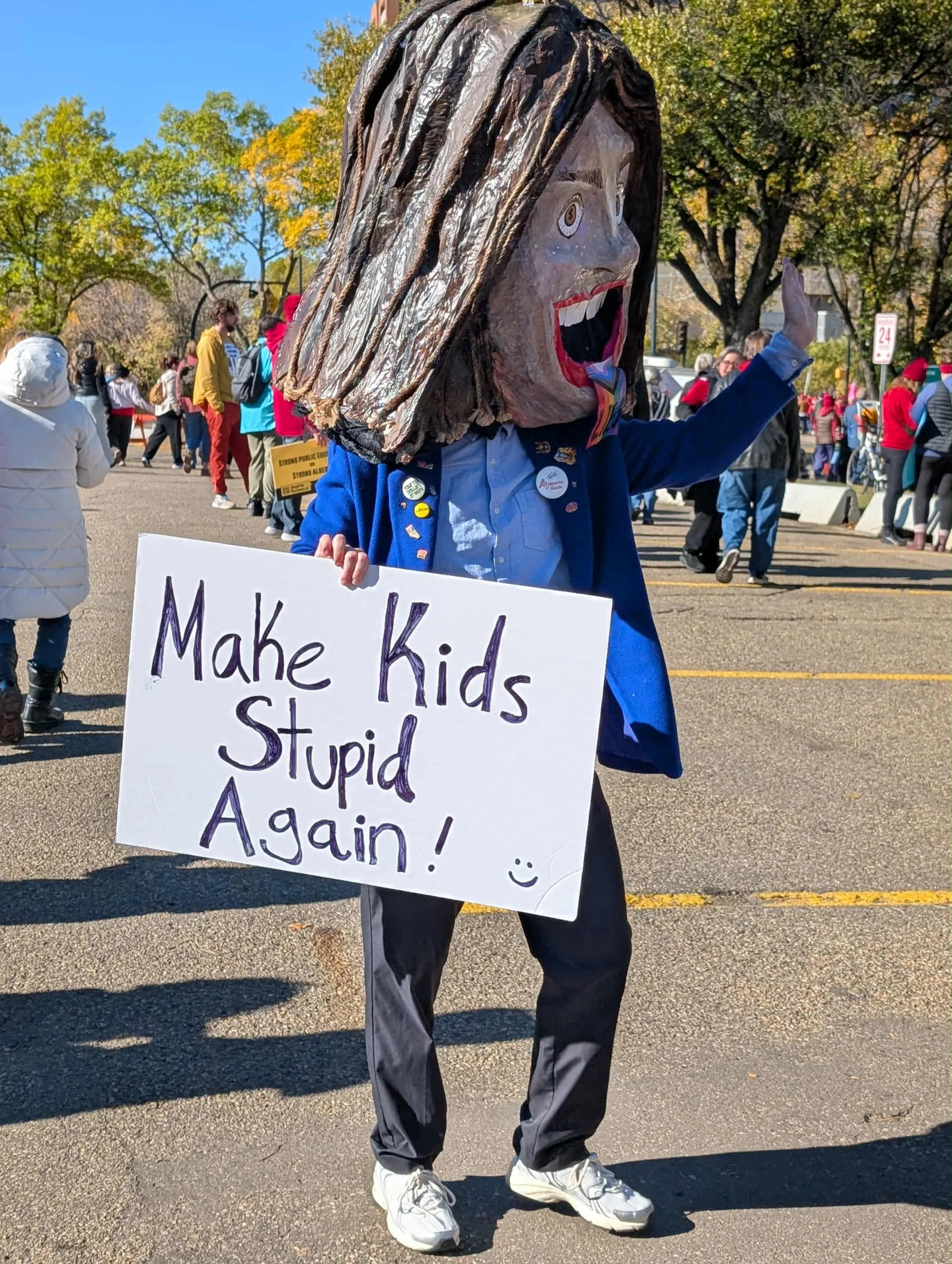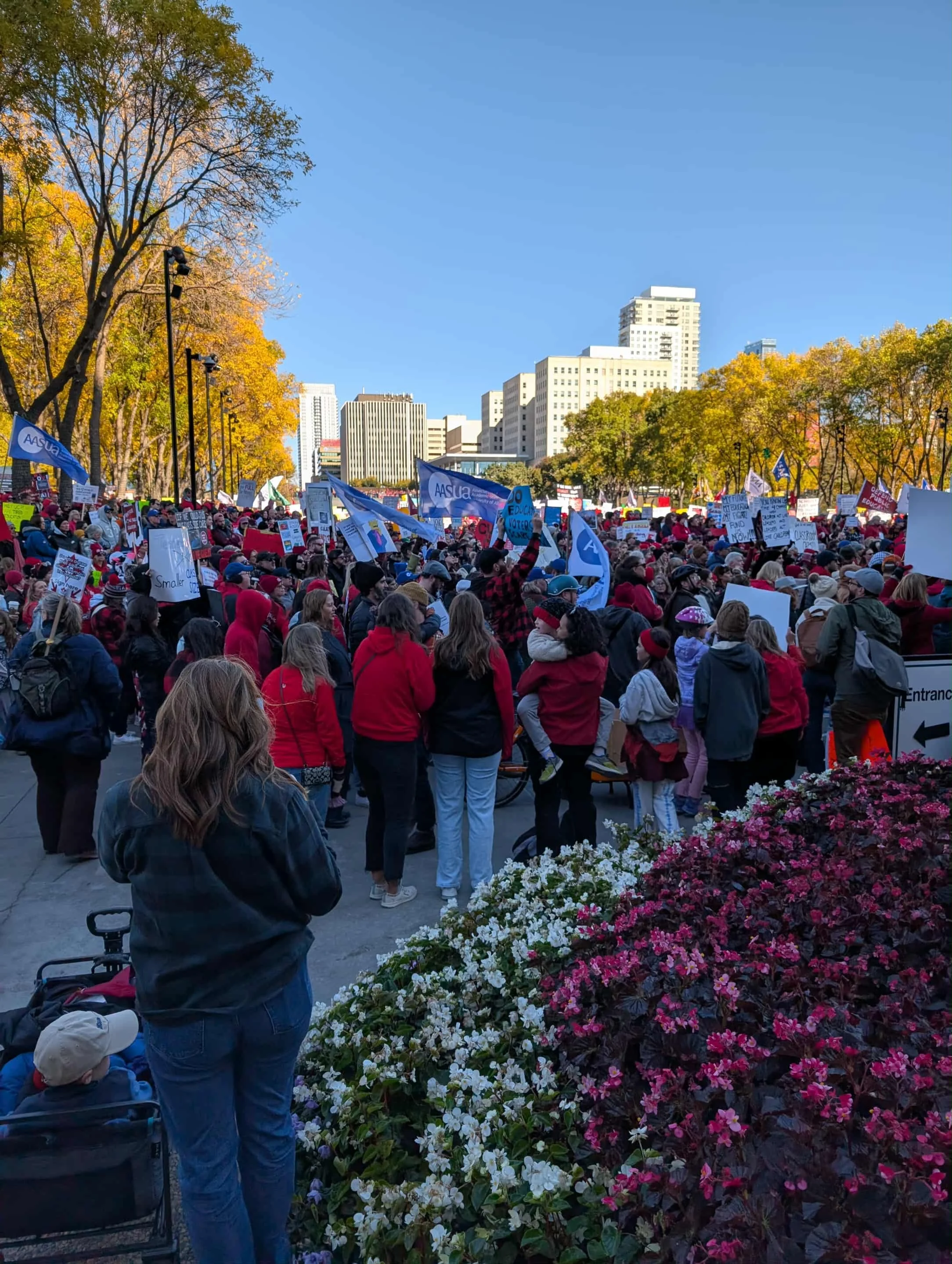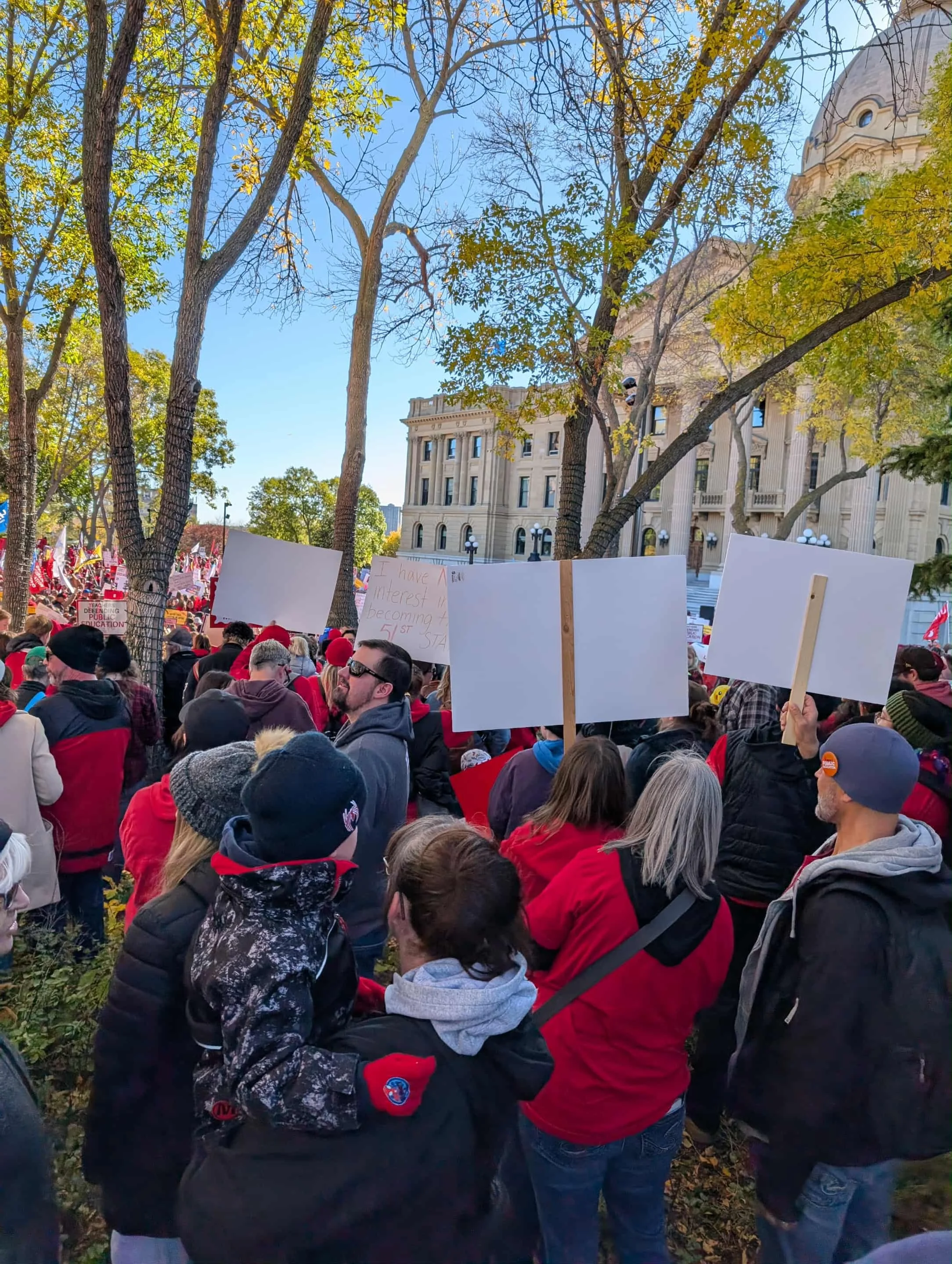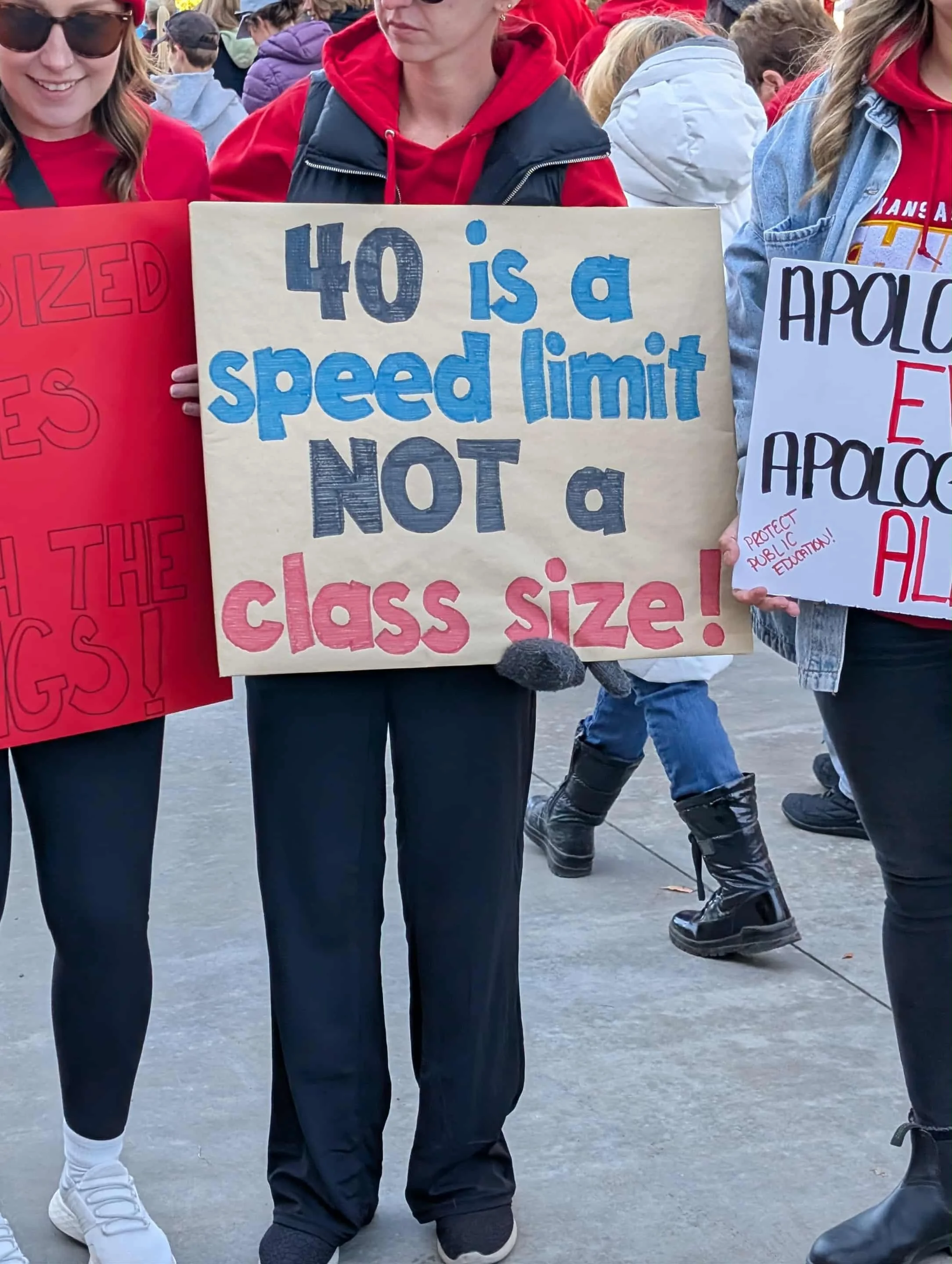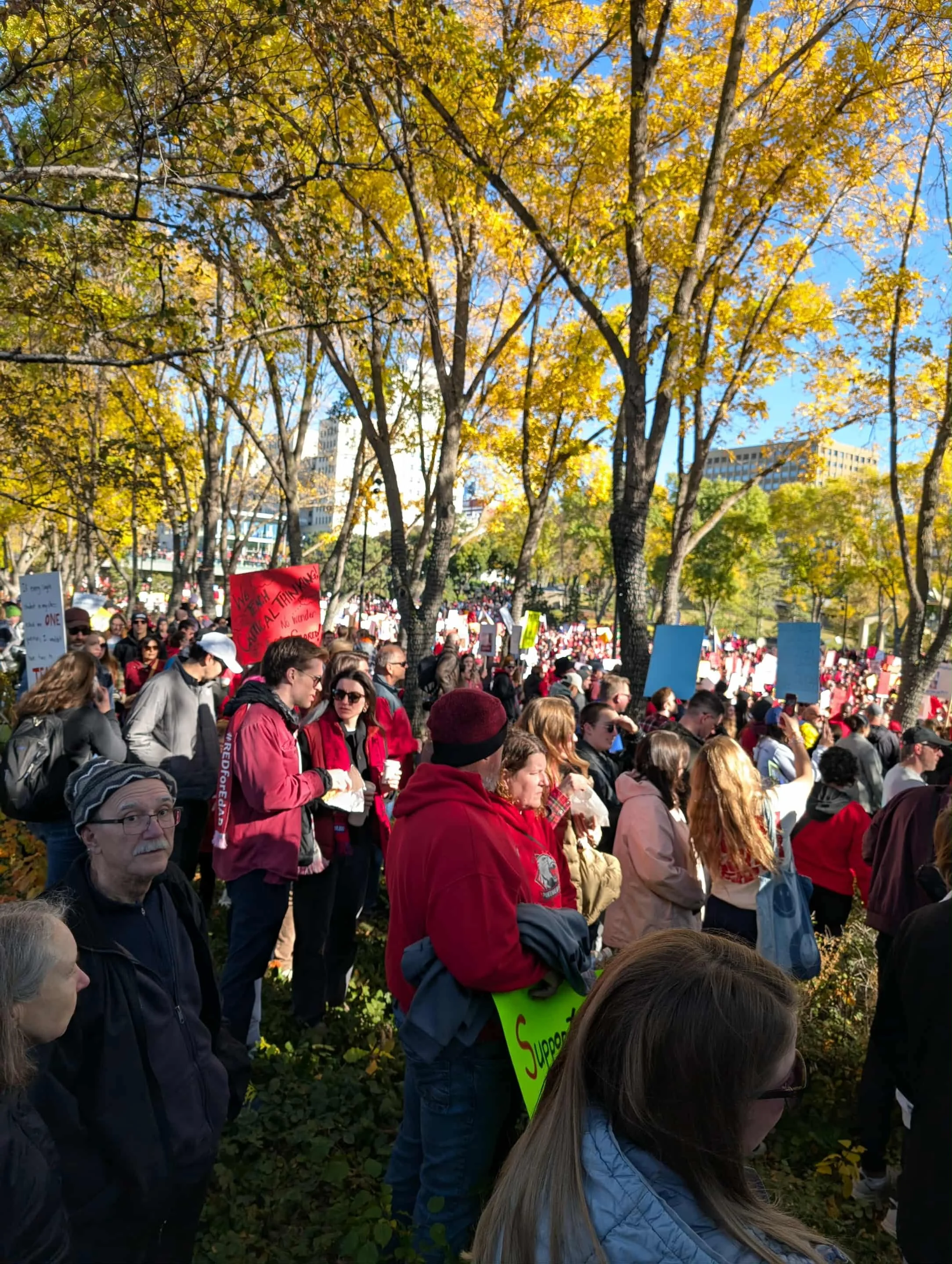AUFA members join thousands in support of teachers strike
After a resounding rejection of an unsatisfactory settlement offer by Alberta teachers, a province-wide strike is now underway. AUFA stands in solidarity with the Alberta teachers who are fighting for better conditions for students and fair treatment and compensation for their extraordinarily difficult and important work.
Several AUFA members joined rallies and other demonstrations of support for teachers in Edmonton, Calgary, and elsewhere in the province. Current estimates are that about 21,000 people showed their support, including a crowd of about 18,000 at the legislature. Members are encouraged to follow the ATA locals active in their area for updates on how to support teachers, as there will not be regular picket lines at most schools.
We also need to recognize that many AU staff and students will be directly impacted by the teachers’ strike. We encourage members to prioritize their family well being and extend grace and patience to colleagues during this time, and we expect the employer to offer flexibility and support to staff members.
The teachers’ strike exposes core problems with the public sector in Alberta that also impact our work and working conditions at AU. Teachers are on strike because of the cumulative impacts of years of a paralyzing combination of neglect – especially in terms of funding and staffing – and meddling, from mishandling curriculum updates to direct attacks on the rights of vulnerable students. During this time, there has also been an expansion of public funding for private and charter schools alongside top-down fuelling of culture wars (see for example a recent Parkland Institute report on “parental rights”).
This is the classic neoliberal playbook: simultaneously starve and overwhelm the public sector, then point to the crises that result as a reason for increasing the role of private actors in delivering public services for profit, which leads to more crises that further get “solved” by introducing more opportunities for profit-making, and the cycle continues. A similar dynamic is playing out with Canada Post, the postsecondary sector across Canada, and many other important public services.
Many of the operational and leadership challenges at AU are also connected to the same basic assumptions about corporate structures and attitudes offering more efficiency, which staff experience as mounting workloads and pressure. Every time we survey AUFA members about their working conditions, we hear about unrealistic demands to do more with less.
The provincial government has also consolidated power within bargaining with public sector unions via secret mandates and other mechanisms that restrict unions’ ability to take effective labour action. That teachers are taking on substantial personal risks by taking this action without the safety net of strike pay shows us the importance of standing up for education, for our kids, for our communities. Like the educational assistants before them as well as unionized workers in healthcare and other public services, teachers are putting their principles and their commitment to the future ahead of their own personal financial security.
That our futures are all connected is one reason why AUFA, along with our sibling unions in CAFA and ACIFA, have joined the Common Front, an effort to build solidarity across the labour movement in this province. Labour action like this teachers’ strike is disruptive by design: unlike the decision-making power that is concentrated at the top, ours is a collective power to disrupt and demand better.
While the teachers did eventually move to a full strike, multiple other unions have seen better deals after holding strike votes. Most recently, AASUA, our sibling union for the University of Alberta, saw their employer finally move on key items after AASUA moved to undertake a strike vote. Other unions that saw similar movement after some combination of ratification votes and strike votes include the United Nurses of Alberta and the Alberta Union of Public Employees.
The teachers’ strike is also a reminder that our own collective bargaining process may also lead to impasse and a possible strike. While this round of negotiations has been thankfully much more cordial at the table, AU’s team is subject to pressures and mandates that may not be acceptable to members. Negotiations require leverage, and the ability to withhold labour is the most powerful legal tool available to unions. If you haven’t already, please review the Strike Handbook and provide your non-AU contact information to the AUFA office (re-submit if you’re not sure you’ve already provided this!).
The Job Action Committee is preparing for this possibility, and we need more help! If you would like to volunteer in some capacity, please contact engagement@aufa.ca
Rhiannon Rutherford, Governance Lead and Job Action Committee Chair



